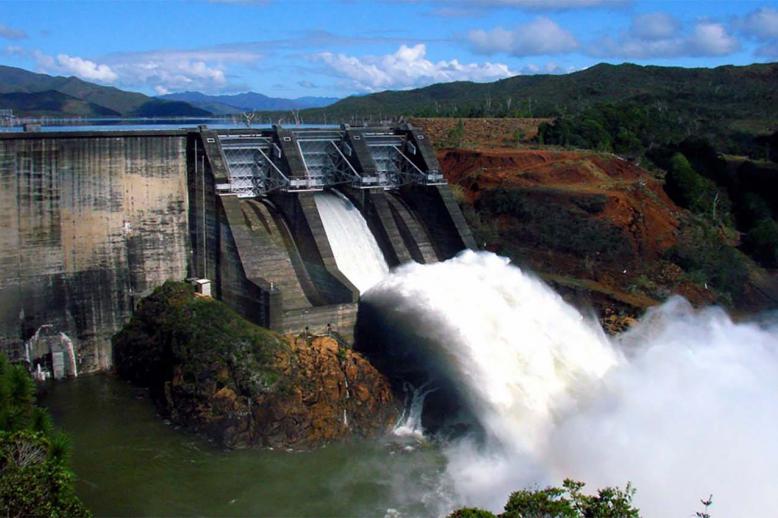Place your bet: Three options for the Iran nuclear deal
Washington has been aflutter with the Trump-Macron bromance: The two leaders spoke glowingly of each other, cheek-kissed, seemed to be holding hands at times and sat down together — with their wives — for US President Donald Trump’s first official state dinner.
Not since the Marquis de Lafayette came to the aid of the American colonies in their war against Britain has a French leader been so welcomed in the US capital.
French President Emmanuel Macron, however, was on a mission. The “Trump whisperer” — as he has been flippantly referred to in Europe — went to Washington to try to talk Trump out of abandoning the nuclear deal with Iran.
Macron faced an uphill battle: Trump campaigned in 2016 against the deal with Tehran; his new national security adviser, John Bolton, has said there is no problem with Iran that cannot be resolved by a US-imposed regime change; and when Mike Pompeo, Trump’s new secretary of state, served in the US Congress, he advocated for missile strikes against Iran’s nuclear facilities.
Macron is a clever man who seems to have a good read on Trump and his need for ego gratification. Instead of trying to persuade the US president to preserve an agreement reached by Trump’s predecessor, former President Barack Obama, Macron pledged to work with Trump on a “new deal” — a “Trump deal” to replace the hated “Obama deal.”
In fact, any “new deal” would consist of changes to the accord negotiated by Obama’s secretary of state, John Kerry, but Macron’s language would allow Trump to claim that he had torn out the flawed old agreement and brought in a shiny new one. Trump seemed to take the bait: At a news conference with Macron on April 24, he said: “I think we will have a great shot at doing a much bigger, maybe, deal.”
In January, Trump reluctantly agreed to continue the waiver on US sanctions on Iran, thus preserving the nuclear accord, but indicated that he had no intention of doing so again on May 12, the next date by which he must make a decision.
For Trump to agree to a new agreement, it must contain tighter sanctions against Iran for its missile programme and its interference in regional conflicts, which has unnerved US allies in the Arab world as well as Israel. Macron’s task will be to persuade his European allies — especially the United Kingdom and Germany, which, like France, were signatories to the agreement — to agree to tighter sanctions. The other signatories, Russia and China, are adamant about maintaining the agreement as it is.
Even if Macron can get Trump to forestall action on May 12 while a new deal is being worked out and even if the French president can convince his European allies to go along, there is no indication that Iran will play ball. In fact, all indications point to the opposite reaction.
On April 25, Iranian President Hassan Rohani said “not a single word will be added to or removed from the agreement” and warned of “severe consequences” if the agreement falls apart. Ali Larijani, the speaker of the Iranian parliament, said: “The Iranian nation is not scared of Trump’s ludicrous diplomatic manoeuvres. We will respond to America at the appropriate time.” Iranian Defence Minister Amir Hatami chimed in that his ministry would “execute its own plan at the appropriate time” if the United States pulls out of the agreement.
At his April 24 news conference with Macron, Trump said: “Nobody knows what I am going to do on the 12th.” Presumably, this means that he doesn’t know either. The best we can do is consider the options and place our bets:
Option 1: On May 12, Trump has forgotten his warm and cuddly talks with Macron and announces that the United States is reimposing sanctions on Iran, effectively terminating the agreement. European countries, including France, remain committed to the deal and encourage Tehran to stay in as well. Iran does not react immediately but an internal struggle breaks out between Rohani and more hard-line factions over what to do.
Option 2: On May 12, Trump lays out a “new deal” worked out with France that includes new sanctions related to Iran’s non-nuclear actions but will the United Kingdom and Germany join in? Will Iran dismiss it out of hand?
Option 3: On May 12, Trump reluctantly renews the waivers to give Macron and Europe another four months to craft a new arrangement. Tehran will spend the four months spitting fire and we will go through all of this again in September.
Bets must be placed by midnight May 11.
Mark Habeeb is East-West editor of The Arab Weekly and adjunct professor of Global Politics and Security at Georgetown University in Washington.
© The Arab Weekly




